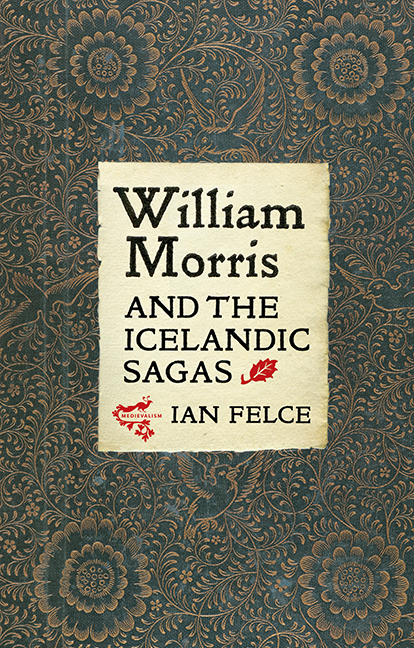Book contents
- Frontmatter
- Dedication
- Contents
- Acknowledgements
- Author's Note
- List of Abbreviations
- Introduction
- 1 ‘The Lovers of Gudrun’ and the Crisis of the Grail Quest
- 2 The Sagas of Icelanders and the Transmutation of Shame
- 3 Grettir the Strong and the Courage of Incapacity
- 4 Heimskringla, Literalness and the Power of Craft
- 5 Sigurd the Volsung and the Fulfilment of the Deedful Measure
- 6 The Unnameable Glory and the Fictional World
- Conclusion
- Bibliography
- Index
- Miscellaneous Endmatter
1 - ‘The Lovers of Gudrun’ and the Crisis of the Grail Quest
Published online by Cambridge University Press: 17 July 2019
- Frontmatter
- Dedication
- Contents
- Acknowledgements
- Author's Note
- List of Abbreviations
- Introduction
- 1 ‘The Lovers of Gudrun’ and the Crisis of the Grail Quest
- 2 The Sagas of Icelanders and the Transmutation of Shame
- 3 Grettir the Strong and the Courage of Incapacity
- 4 Heimskringla, Literalness and the Power of Craft
- 5 Sigurd the Volsung and the Fulfilment of the Deedful Measure
- 6 The Unnameable Glory and the Fictional World
- Conclusion
- Bibliography
- Index
- Miscellaneous Endmatter
Summary
IT HAS BEEN suggested that ‘The Lovers of Gudrun’, the ‘medieval’ poem that Morris composed for the November section of Part III of The Earthly Paradise (1868–70), marks some kind of departure in his poetry. Based on the love triangle between the foster-brothers Kjartan Ólafsson and Bolli Þorleiksson, and the heroine Guðrún Ósvífrsdóttir in Laxdæla saga, one of the most famous of the sagas of Icelanders, ‘Gudrun’ contains an emotional starkness that has been described as ‘low-keyed realism’. Though it is arguable whether there is much in the poem that is low-key, it is undeniable that the vivid emotionality of ‘Gudrun’ encompasses a quality of strength and humanity that distinguishes it from the dreamier tales that come before it. Tompkins felt that at the time that ‘Gudrun’ was written Morris and his critics ‘seem to have hoped that a change was impending, a return, or advance, to more overtly human themes’, while Linda Julian has argued that Morris ‘sensed his own artistic development’ in the poem, which led ‘to a different style’.
It is certainly true that ‘Gudrun’ is distinct from the poems that precede it in The Earthly Paradise, most obviously because of its more severe tone and considerable length. Having begun the period of intense translating activity with Eiríkur Magnússon only a few months earlier, Morris drafted ‘Gudrun’ at the height of his initial engagement with Old Norse literature in the spring and summer of 1869, before it was published in Part III of The Earthly Paradise that November. Since E. P. Thompson associated The Earthly Paradise as a whole with despondency, calling it ‘the poetry of despair’, scholars have often understood the new-found starkness of ‘Gudrun’ to relate to a crisis of confidence in Morris's middle years, most frequently tied to unhappiness in his marriage due to Jane Morris's apparent affair with Rossetti. Oscar Mauer suggests that Morris ‘was adapting the saga material in a direction that reflected his own trouble’, and Florence Saunders Boos that ‘one could readily adduce a number of parallels with [the tale and] Morris's and Rossetti's painfully complex but nonviolent rivalry’ (TEP, ii, p. 284).
- Type
- Chapter
- Information
- William Morris and the Icelandic Sagas , pp. 27 - 52Publisher: Boydell & BrewerPrint publication year: 2018

